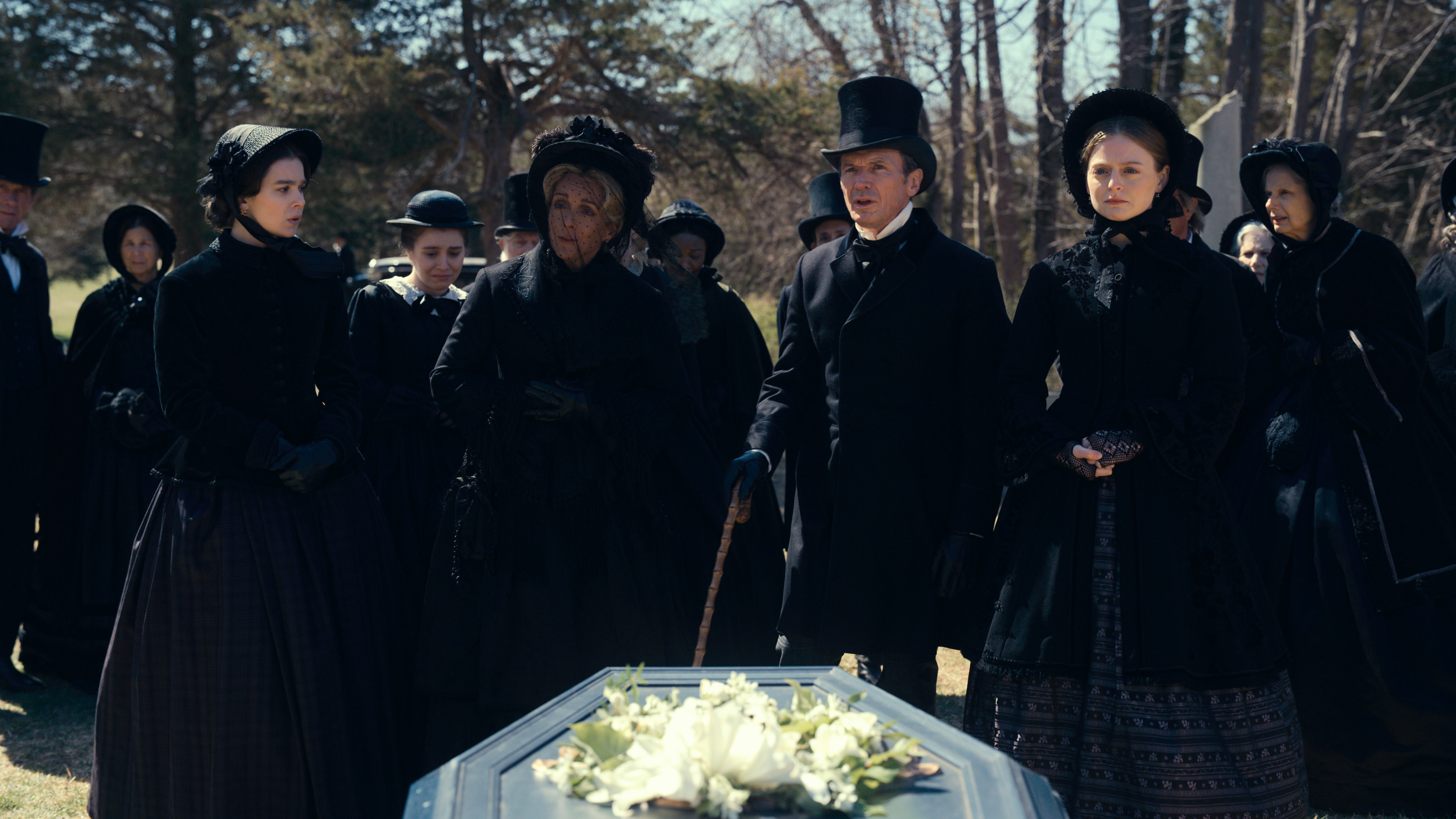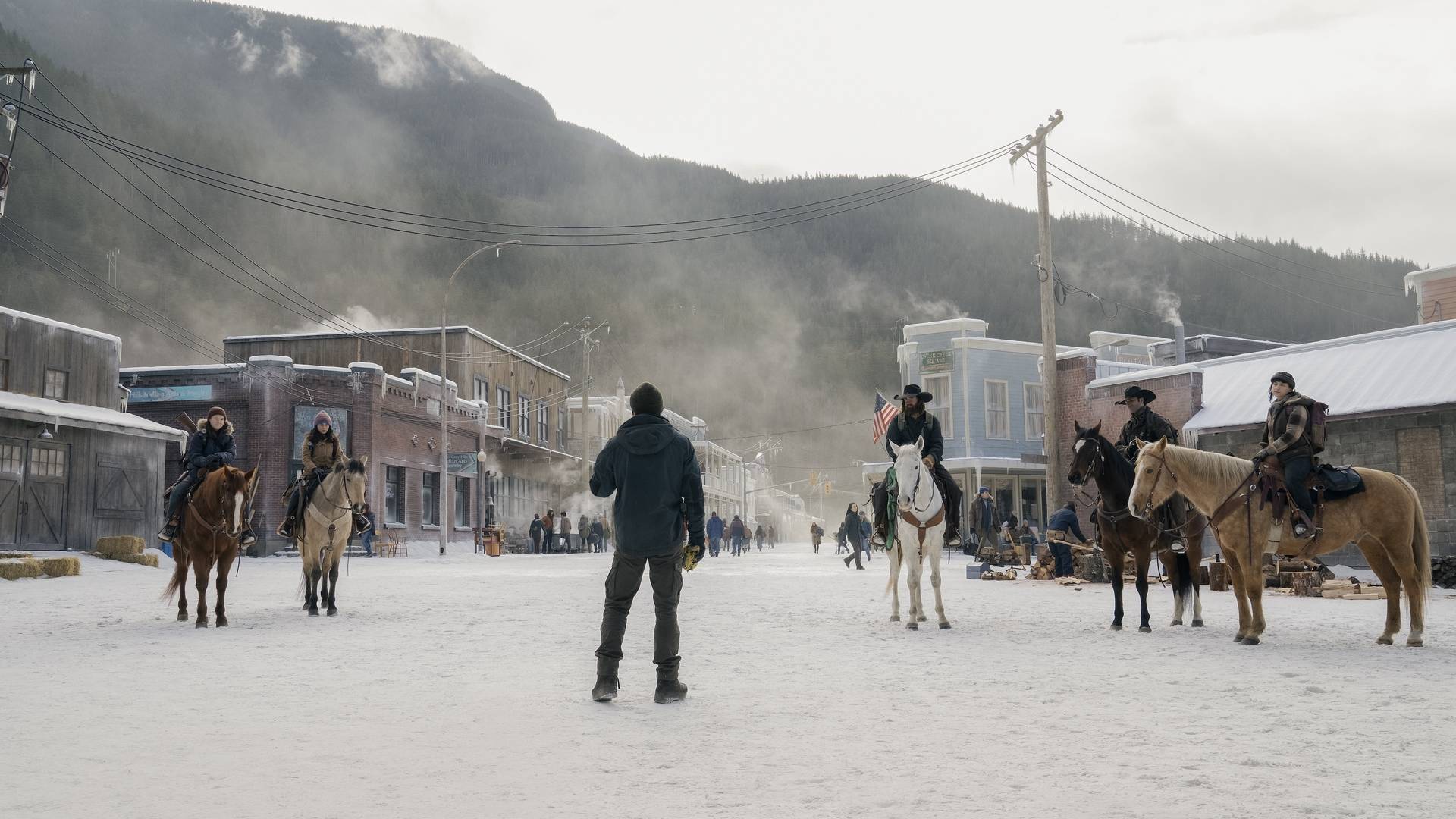What to Watch Verdict
A strong start to the final season, which emphasizes how relevant and innovative Alena Smith's series is.
Pros
- +
Hailee Steinfeld's ability to capture Emily's optimism and wavering hope
- +
Betty's increased role
- +
The way contemporary and historical references sit side by side
- +
The farewell conversation with Frazar Stearns
Cons
- -
Austin's self-pity could wear thin rather quickly
This post contains spoilers for the Dickinson episodes "'Hope' Is the Thing With Feathers," "It Feels a Shame to be Alive" and "The Soul Has Bandaged Moments." Read our season 2 finale review here.
Fame preoccupied Emily Dickinson’s (Hailee Steinfeld) thoughts in the triumphant second season of Dickinson, but brewing disharmony pointed to the forthcoming American Civil War. That conflict is no longer looming on the horizon in the form of specters only Emily can see, as it is clear from the first three episodes of the third and final season of Dickinson that this defining event in U.S. history will take center stage.
A rupture in the Dickinson home is also established during this triple bill, which sees Austin (Adrian Blake Enscoe) fall into the depths of self-pity while rejecting those closest to him. “Hope is worth every fight” is the tagline for this final season and Emily has her work cut out if she is going to keep her family from coming further apart at the seams.
“In the years of the Civil War, Emily Dickinson reached her greatest heights as a poet,” Sue (Ella Hunt) explains in the opening narration that matches the quick establishing history lesson of the previous two seasons. During this time Emily was writing nearly a poem a day and this intense productivity is referred to as “a great and classic descent into a personal inferno.” References to Dante are both oblique and direct across the three episodes, which suggests a parallel is being drawn between Emily and the great Italian poet. Sue also reflects that while these poems are preoccupied with current events, Emily is rarely referred to as a war poet because of her solitude and physical distance from the front line. However, when the words are spoken with the Civil War as the backdrop it emphasizes the potency of the poet’s words during this fraught time that suggests she is a voice of the nation. Legacy has been a recurring theme and this takes on new meaning in the third season.
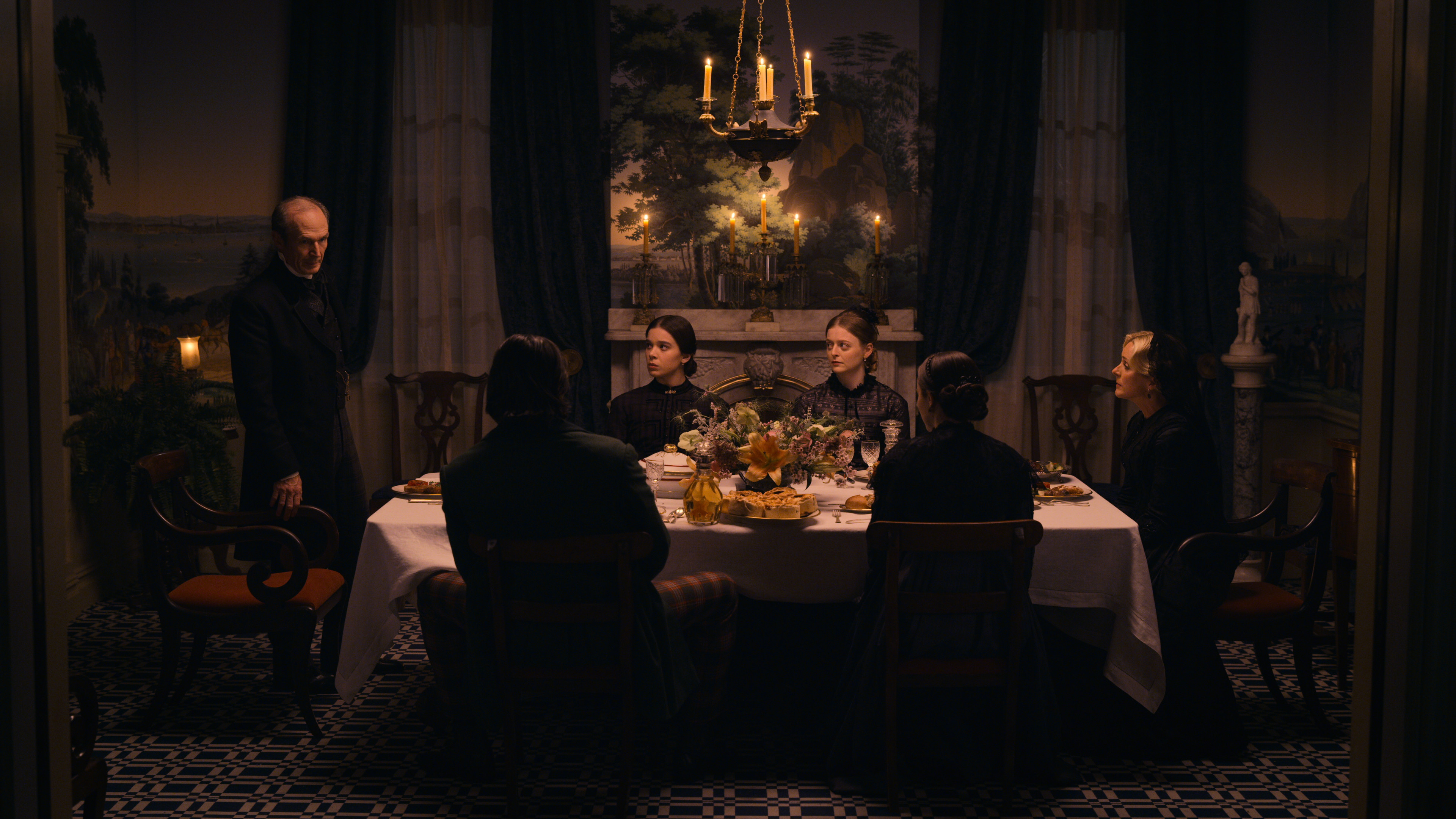
Emily is shown wearing a Union uniform with a gun in hand before the fantasy segues into the reality of her familiar desk before shifting once more to a funeral. At first, it appears as if it could be the death of Frazar Stearns (Will Pullen), who Emily envisioned first as Nobody before realizing he is one of Austin’s college friends. Rather, it is Mrs. Dickinson’s (Jane Krakowski) sister Aunt Lavinia (Jessica Hecht) who is being laid to rest. When the priest realizes this isn’t the burial of a fallen soldier he barely gives the family enough time to say goodbye because the backlog is 15 Union men long. At this time of great sorrow, all focus is on those dying for their country and Aunt Lavinia’s death cannot compete with those heroes — even if to Mrs. Dickinson the loss is profound.
When Emily sees a yellow bird she thinks her Aunt is talking to them through this creature. Considering her close commune with nature — remember the giant bee voiced by Jason Mantzoukas? — this is not a surprising comment, but in this case a bird appears to be just a bird. Or rather, it doesn’t speak with Aunt Lavinia’s voice or make its motives known beyond hanging out in a tree. For Emily, this winged being is reflective of her desire to find hope in the dark and for her work to become a beacon of light. Self-doubts centering on fame are no longer consuming her every thought and now she wants to turn her words into a unifying tool. Emily’s optimism is in contrast to the anguish that most — particularly her brother and mother — are experiencing and the poem writes after seeing the bird reappear is one of her most famous.
“'Hope' is the thing with feathers” is a line that eludes the poet until Edward Dickinson (Toby Huss) collapses at the end of the first episode. The yellow bird flaps its wings and nearly knocks over a candle after Austin’s outburst in which he spits “This family is a joke.” Austin blames Edward for everything wrong in his life commenting he is a “broken, miserable man.”
This should be a joyous time for Austin as Sue is heavily pregnant with their first child but the relationship has sunk to new lows since it was revealed last season that Sue had cheated on him with Samuel Bowles (Finn Jones). Austin has also been stepping out with Jane (Gus Birney) since we last saw him, but this relationship is cut short when she moves to Vietnam — leading to further despair. Austin’s fraught state of mind is understandable, however, it could wear thin if this pity party continues.
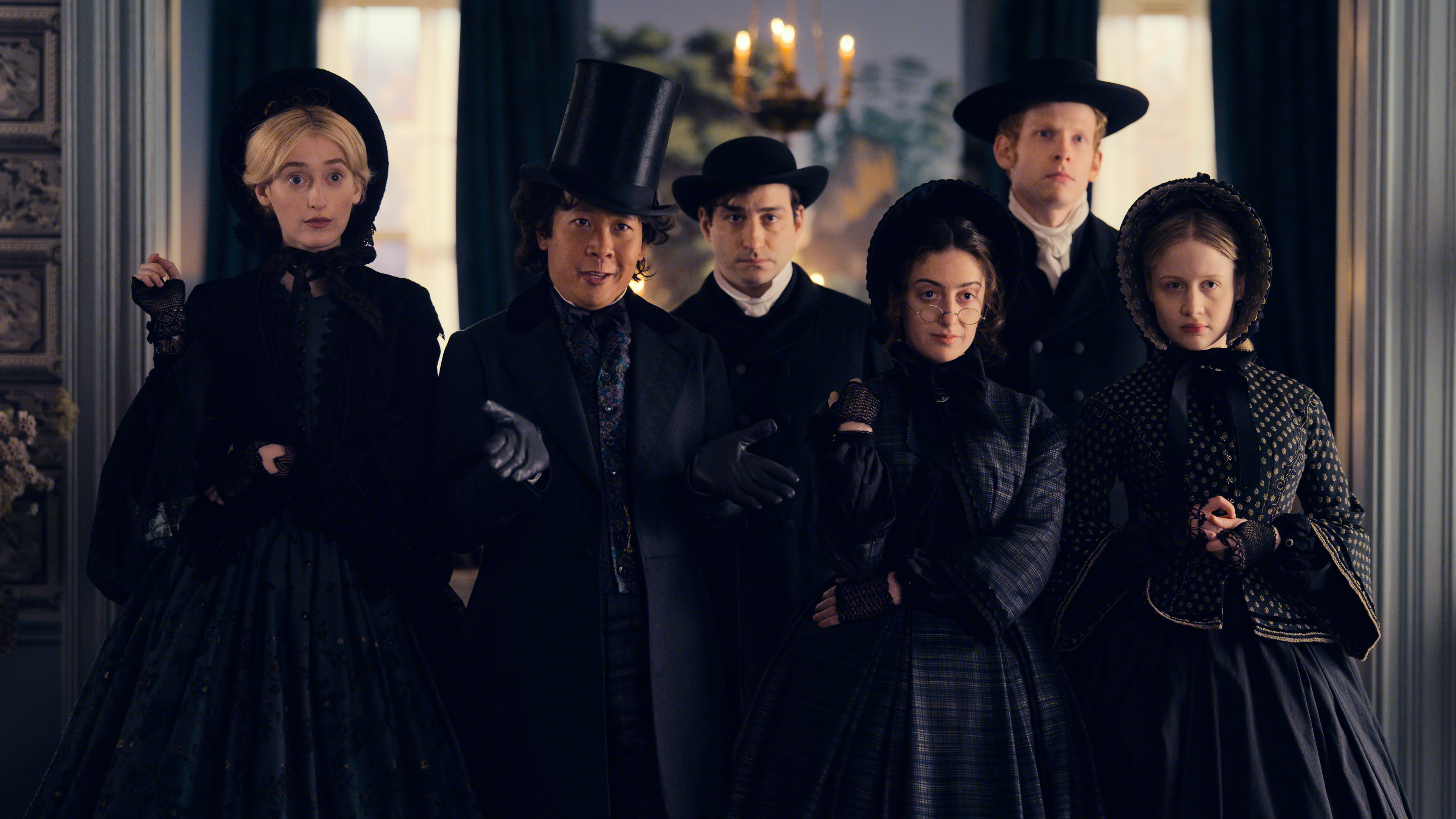
Despite these obstacles, Emily will not be discouraged and the poem that gives the first episode its name describes a bird that returns no matter the severity of the storm. It is also worth noting that a Mare of Easttown episode took its title from this poem, which reflects the experience Mare (Kate Winslet) is facing with the case and the crisis enveloping her personal life. The setting is contemporary, but shared themes centering on the family link the HBO crime drama to Dickinson through Emily’s words.
Anachronistic language winks at the parallels to the fraught year in which Alena Smith conceived and wrote the final season. One character quips about the urge to go back to normal and loss extends to the comforts that no longer exist. This irreverence of the Amherst clique holds up a mirror to some of the more self-absorbed missives fired off on Twitter and in private during the pandemic and this blending of past and present is a Dickinson signature. While flights of fancy fall into magical realism, the notion that the Apple TV Plus series is historically inaccurate is a matter of semantics. Sure, the Amherst residents didn’t use this lexicon nor did they dance to hip hop or pop but Smith’s portrayal of the poet is nuanced and rooted in research.
Rather than only show how the Civil War is impacting those in the North, it is through Henry (Chinaza Uche) that we witness the conflict raging in the South. He left his family in Amherst at the end of last season and while he is no longer writing to his wife Betty (Amanda Warren), Henry is still very much alive. Through Betty’s storyline, the power of the written word is also elevated when she explains his letters “stitched us back together” after his words in the abolitionist newspaper tore their family apart — it was this that caused his departure.
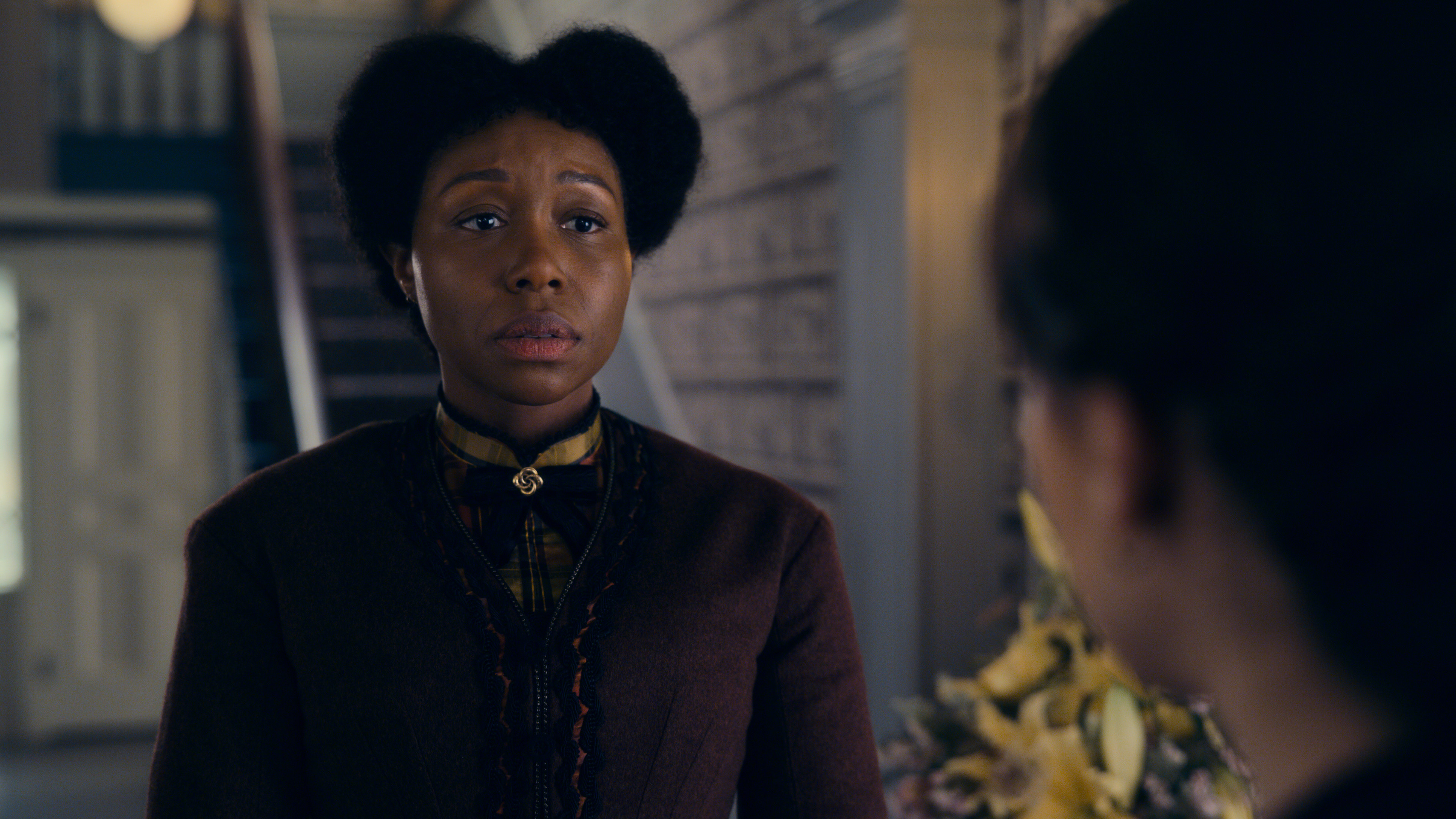
From the first three episodes, Betty’s prominence is established and she is no longer on the periphery. This is a welcome development and thankfully she isn’t only serving Emily’s storyline or making garments for the many people in mourning — though it is good to see her business thriving. She also has an important houseguest with Ziwe Fumudoh taking on the role of prominent abolitionist and fighter for suffrage, Sojourner Truth (there is a joke about how good she looks for being at least 60). Betty has been transcribing her memoir and Sojourner was the first Black woman to sue a white man in court and win, which makes her story one that should be more well known. It has been a good week for Fumudoh, as she also made her Succession debut and she is also in the Dickinson writers’ room.
The sewing circle sequence in “The Soul Has Bandaged Moments” is a mix of hilarity and poignance — another Dickinson signature — that doubles as an occasion to unburden feelings. The setup is less spooky but is similar to last season’s séance that also allowed these women to speak more freely than they typically feel inclined to do.
Convening with the dead takes on a different form this year and Emily does speak to her pal Death (Wiz Khalifa) in the premiere. He is feeling blue because his role has become a repeat performance of gunshot wounds and gangrene. Edward Dickinson does recover from his small heart attack, but it makes him realize he has a legacy to figure out — a legacy made more complicated as his brother lives in the South. Meanwhile, Vinnie (Anna Baryshnikov) is mourning the deaths of both big hair boyfriends Ship (Pico Alexander) and Joseph Lyman (Gus Halper). Vinnie’s single status also gives her pause as she cannot take on the widow role because she married neither man, resulting in a feeling of distraught.
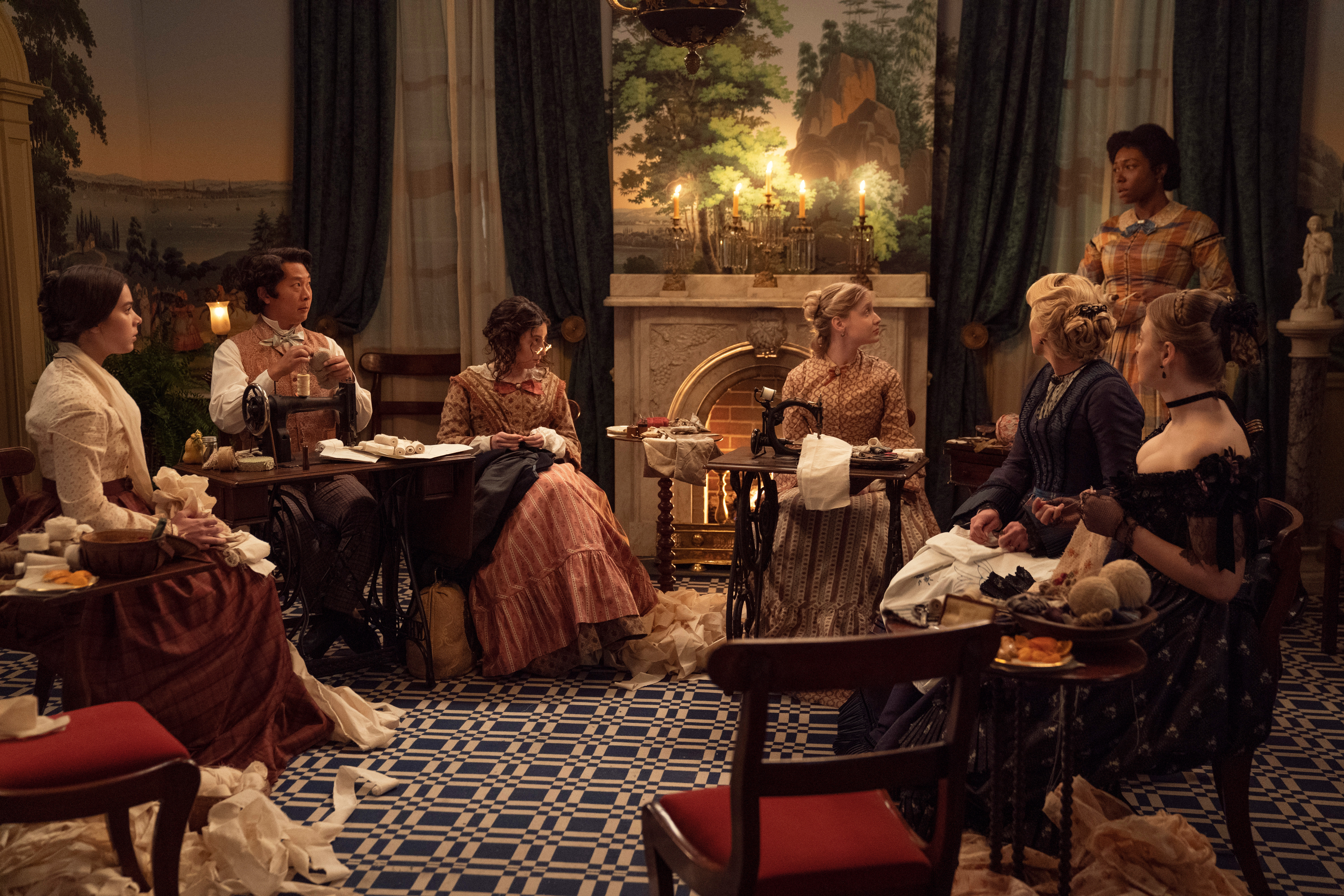
The relationship between Vinnie and Emily is one of the strongest in the Dickinson home, so while there is discord with their oldest brother, they are united. Even though Vinnie and Emily differ in the way they express themselves, this sisterly bond is uncomplicated and despite past disagreements the foundation is strong. On the outside, Emily and Sue are like sisters but this unconditional love takes on a very different form. Last season ended with the pair sleeping together again, but Sue’s current condition doesn’t allow for much time alone.
Sue paints a picture of a world in which they can raise the baby together, but children don’t factor into Emily’s dream scenario and she keeps avoiding this subject. Whereas Mrs. Dickinson is furious that Sue won’t let her hold the nameless baby — she is particularly aggrieved as she brought her grandson into the world using her farming midwifery skills — Emily rejects the offer to cradle the newborn. In her post-natal haze, Sue feels rejected by Emily and for once she would like to be chosen over the Dickinson clan and poetry. The path to true love is never smooth and it is made more complicated by society’s prejudices and Sue’s marriage to Austin. It doesn’t matter that her union with Austin is loveless as Sue is stuck on the side of her husband in this war against his family.
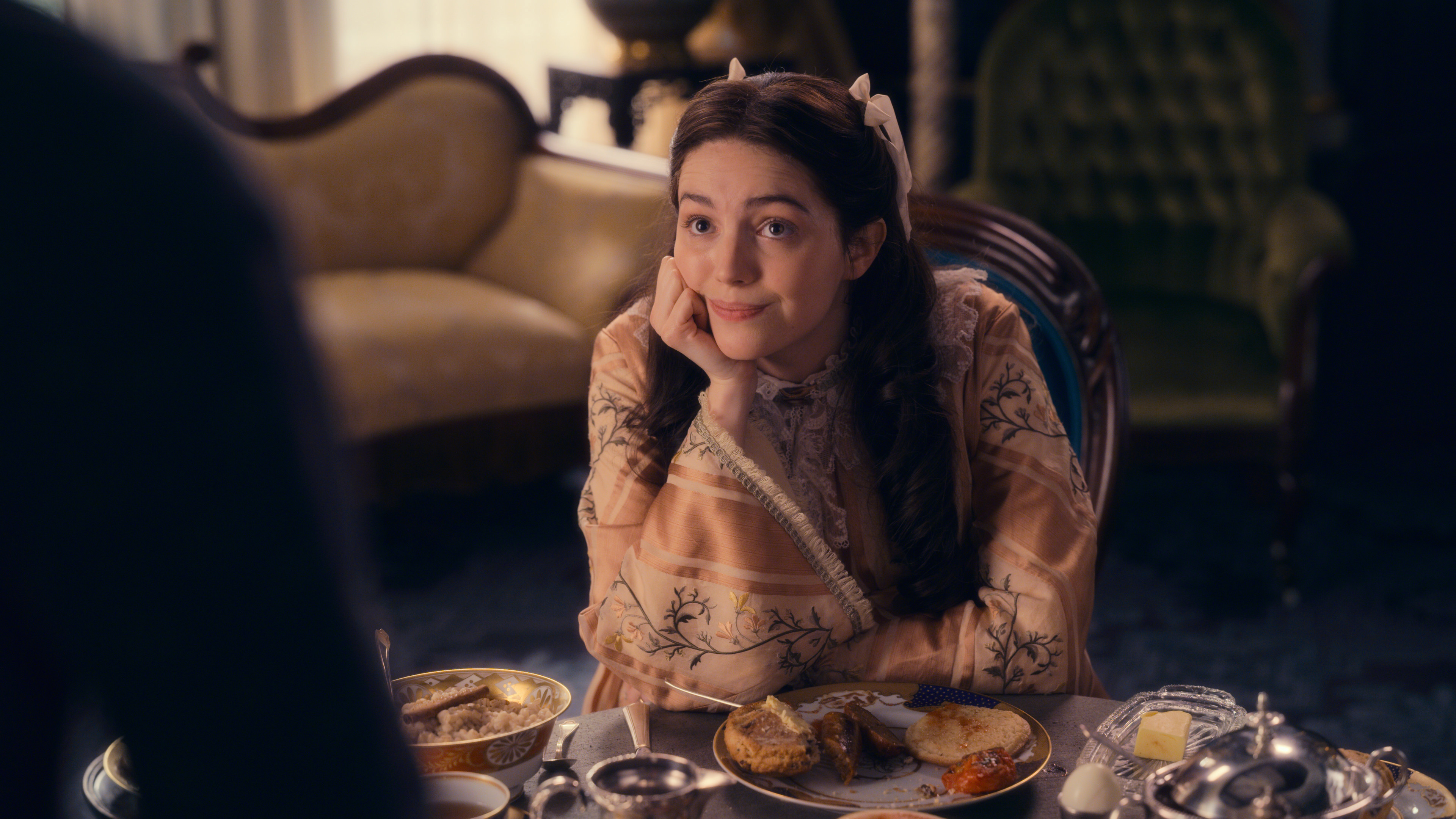
Breaking the myth of Emily’s solitude extends to her relationships with men like Frazar Stearns and George (Samuel Farnsworth). The latter misreads the signs (again) and attempts to kiss Emily (again), but there are no hard feelings this time. George does come bearing a copy of The Atlantic, which includes a letter from abolitionist (and Secret Six member who helped fund John Brown’s cause) Thomas Wentworth Higginson offering advice to young poets. (Without revealing too much, but fans of Emily’s work will likely have been waiting for mention of this transformative letter)
Across these three episodes, Emily’s position has gone from self-assured confidence that she can provide hope through art to having her power questioned. “If you can’t handle the mess of the world why would anyone need to hear what you have to say? Writing that shuts real life out is as good as dead,” Betty asks the poet.
It is a valid question when considering Betty’s house guest, Henry, and his journey, and how writers like Walt Whitman are out in the field as a nurse while she languishes in her family home in Amherst. At times Emily’s introspection comes across as incredibly naive and self-absorbed, which adds a layer of complexity and frustration to her actions. The third episode ends with Betty’s words echoing in her mind as she reaches out to Mr. Higginson looking for a connection with someone on the front line.
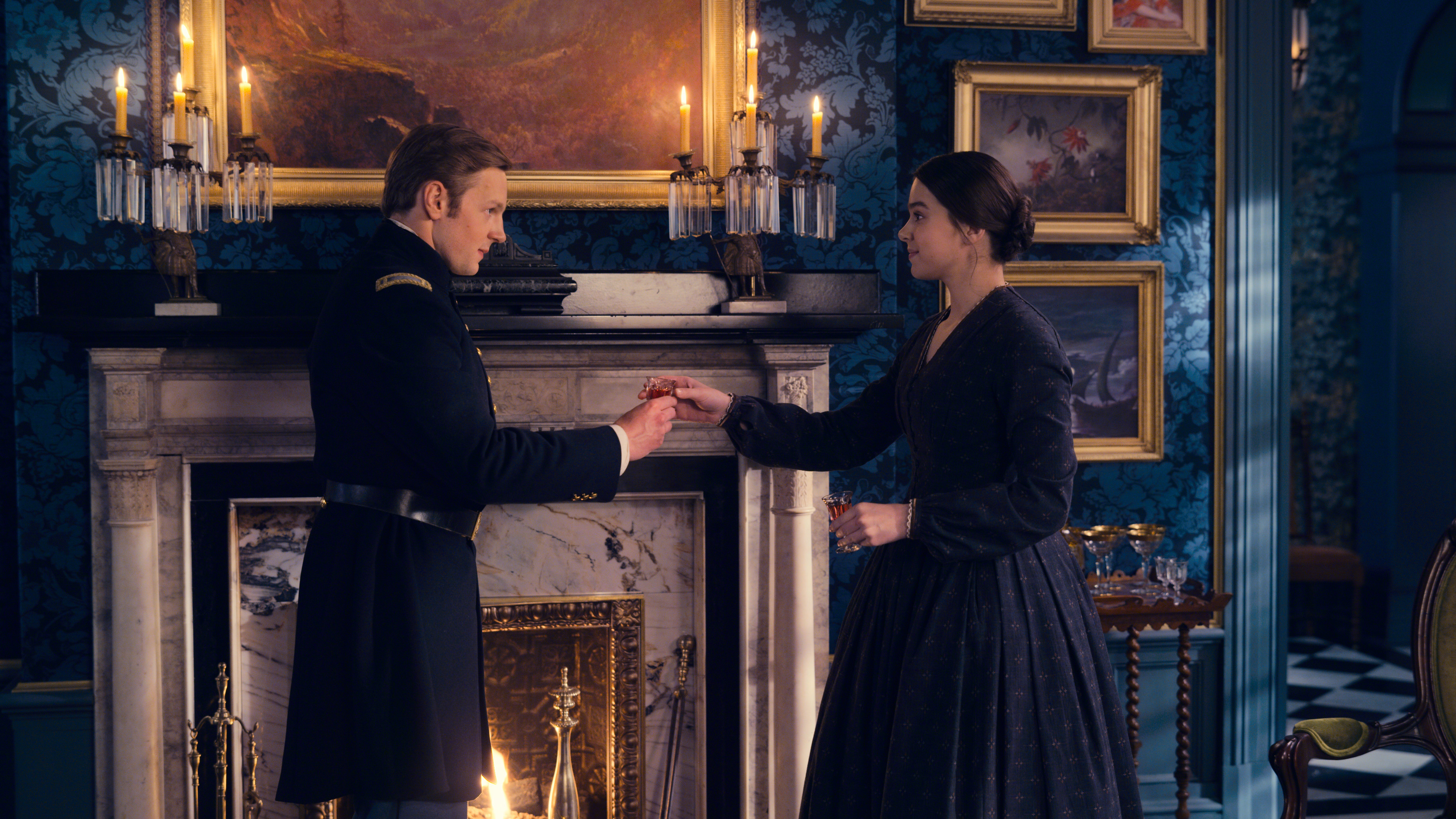
Saying goodbye to Frazar also provides a link to the war and he doesn’t want her to be fake and happy in their parting by putting out false hope into the world.
“What if hope is all we have?” she asks him, which is one of several moments that makes me teary. “Sometimes the most hopeful thing you can do is to look directly at the darkness,” is his response and it is her ability to observe the world as it is that makes a great writer.
The bond between Emily and Frazar is emotionally stirring not only because of the vision she has had but because of the honest reflections that pass between them. He asks for a poem and what she gives him provides the episode its title, “It Feels a Shame to be Alive,” which explicitly references the battlefield and the men who died. She says she wrote it for “nobody” and this is a full-circle moment with a character that has pierced this idea of perception.
Diving straight into the friction rippling through the nation and within the Dickinson home allows Smith to set up the central question about the place of art during a time of hostility and Emily’s role within this period.
“I do believe in the power of writing. Sometimes it’s all we really have,” reflects Betty. Dickinson effectively plants a flag in the poet’s relevance both in 1862 and 2021.
Emma Fraser spends most of her time writing about TV, fashion, and costume design; Dana Scully is the reason she loves a pantsuit. Words can also be found at Vulture, Elle, Primetimer, Collider, Little White Lies, Observer, and Girls on Tops. Emma has a Master’s in Film and Television, started a (defunct) blog that mainly focused on Mad Men in 2010, and has been getting paid to write about TV since 2015. It goes back way further as she got her big start making observations in her diary about My So-Called Life’s Angela Chase (and her style) at 14.
